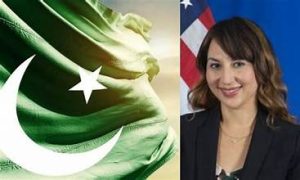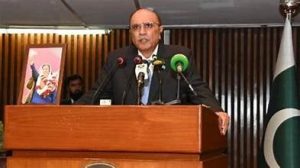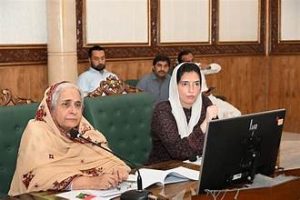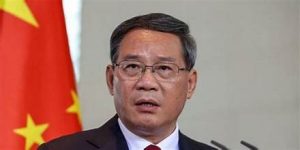Italy: German and Italian leaders meet to talk about third-country return hubs
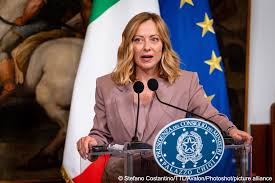
Rome: Germany’s new Chancellor Friedrich Merz met with Italy’s Prime Minister Giorgia Meloni in Rome. The two leaders reportedly discussed a number of issues, including the German government’s interest in developing third-country return hubs.
During their meeting on Saturday (May 17), Germany’s new Chancellor, Friedrich Merz of the conservative CDU, and Italy’s right-wing Prime Minister Giorgia Meloni, leader of the Brothers of Italy (Fratelli d’Italia), demonstrated “unity” in their approach to migration policy.
As host, Meloni opened the press meeting and said that she felt their meeting had been “very open, very friendly and most of all concrete in terms of operative policies.”
Merz joined Meloni in underlining the “deep friendship that has joined our two nations for decades.” He said he hoped their cooperation would only become deeper and more intensive. “For us Germans, Italy is today even more so than ever an indispensable partner both in European and foreign policy.”
A joint press statement was released by the two and posted on the German and Italian government websites on Saturday in their respective languages.
The visit in Rome the second face-to-face meeting the two leaders held in the space of 24 hours, as they were both part of a much broader meeting in the Albanian capital Tirana to talk about Ukraine.
Merz promised that his interior ministry would be working closely together with the Italian interior ministry regarding migration policy.
“We are united on the fact that we want to be more decisive in tackling irregular migration towards the European Union,” said Merz in his speech.
“I also want to speak on behalf of the new German government and say that we will not be keeping our foot on the brake pedal any longer, when it comes to finding solutions for European Union problems. We want to make sure that there are new, more restrictive asylum regulations in Europe installed as soon as possible.”
After the mention of asylum rules, Merz said that the “problem of secondary migration remains.” On this subject, Merz said that he and Meloni were united in that they wanted to work with third states more deeply to try and solve this problem and address the issues related to secondary migration.
Merz went on to praise Italy’s work in the past months with Mediterranean border states, presumably referring to the Italian-led EU agreements with states in North Africa, like Tunisia, Libya and Egypt. “These were good initiatives that we in Germany also support,” Merz stated.
Following the speeches, Merz was asked by the press whether Italy’s Albania plan could be a good model for Germany too. Merz answered, “we already made clear in the coalition contract of our new government that we want to explore whether and how a third-party return hub might work for Germany. We are aware of the difficulties [surrounding the idea of return hubs] as well as the various court cases and decisions regarding them.”
Merz added that the agreement between Italy and Albania, whereby at first Italy had agreed to process asylum seekers under Italian law on Albanian soil, but has now resorted to using the center in Gjader as extra capacity for those detained in Italy and already slated for deportation, was of interest to Germany.
Merz said: “This is one element that will help make the problem smaller, but it is not the solution to all our problems. We are exploring the idea in Germany to see if we can do something similar.”
Merz added that Germany and Italy were united in their attempt to better protect the EU’s external borders, even though Merz explained that Germany didn’t have external EU borders, except with Switzerland, which, despite not being an EU member, is part of the Schengen Area.
The German leader said he wanted to make clear that the EU’s external borders, which also included Italy’s maritime borders, were also “Germany’s external borders,” and therefore “Germany will not leave those states alone who were having to manage the EU’s external borders. We want to find a solution that works for us all, and Germany wants to help in this and play its part. I have already said it, and I will happily repeat it, we will not stand in the way of deeper policies [in this direction] in Brussels. In fact, we will say now that we want to work together with Italy, with the Netherlands, with Denmark and many other countries to help the European Union solve this problem in all of our interest.”
Merz underlined that Germany wanted to conduct a migration and border policy that was in line with European rules. “We have ordered tighter border controls in Germany; they were needed, but we believe that they fully and totally are in line with European law. We are talking to our neighbors, and we are not trying to do something over and above the heads of our neighbors. If these policies do end up going through the courts, we believe that we are in line with all of European law and European human rights law.”
Both leaders were asked by journalists about a probable letter to the European Court of Human Rights questioning the court’s rulings on migration policy. Last week, it was reported that the governments of Italy and Denmark were working on a letter to the court. Unnamed Italian government sources reportedly told the Italian news agency ANSA that although the wording hadn’t been confirmed, the letter would question some of the court’s rulings in respect of the “challenges of irregular modern migration.”
It was not outlined exactly which rulings the letter might be questioning, but one ruling in particular in 2024, about whether or not an entire country can be designated “safe,” if there might either be parts of that country that could be considered dangerous for some citizens, or some citizens in that country that could be considered to be at risk of the ruling government, ended up effectively providing the background ruling that allowed Italian judges to block Italy from executing its asylum processing centers in Albania as was agreed between Rome and Tirana.
The Italian government has already been appealing the Italian court rulings on the matter, and a decision is awaited from the European Court of Human Rights regarding both the policy of declaring countries safe, as well as more specifically, whether processing asylum seekers from designated ‘safe’ countries is possible under European law.
While Merz said he was not planning to write any letter to the court to question any ruling, the German leader underlined that countries in Europe had courts that were free to make sovereign decisions that were in respect of European law.
Meloni agreed that she would be writing a letter. However, she underlined it was not to the court, but rather to question whether the convention, to which all European member states are signed up, “was really something that met the challenges the union is facing today, and whether or not some of those conventions should be reexamined.”
For her part, Meloni told the press that she believed Merz and herself were “united” when it comes to making sure the European Union avoids “overregulating” certain issues, and that they would work together to make sure that the EU concentrates on the “big questions of our era.”
Meloni said she believed the two leaders would work very well in “synchronicity,” around the issue of migration. The priority, underlined Meloni, for them both, was to “consolidate cooperation regarding the fight against human traffickers, as well as protecting the EU’s external borders, enforcing legality and strengthening the return process.” Meloni said she wanted to see more “cooperation of equals, and new ways of cooperating with African countries, with countries of origin and countries of transit.”
Italy’s leader said she was pleased to see Merz was keen to cooperate with “like-minded countries” over the issue of migration, and that he was interested in Italy’s “innovative Albania solution.”
Meloni concluded by saying that the two countries would hold a summit at the beginning of 2026 in Italy to conclude even more bilateral agreements and ways of working together between now and then.

